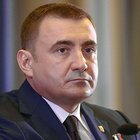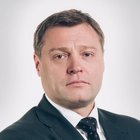In his opening remarks, Aide to the President and State Council Secretary Alexei Dyumin listed the new commission’s responsibilities – coordination of efforts by federal and regional authorities, raising the efficiency of measures in the Russian regions, and the elaboration of the entire set of issues related to support for combat veterans – participants in the special military operation and their families, from healthcare to rehabilitation and employment.
Alexei Dyumin reminded that since the start of the special operation the President had been giving special attention to the support for the service personnel and their families. The federal and regional authorities, businesses and public organisations have all engaged in this work. The State Council Secretary highlighted the contribution by the Defenders of the Fatherland Foundation and thanked its chairperson, State Secretary- Deputy Defence Minister Anna Tsivileva and the foundation’s entire staff.
The Aide to the President said that allround efforts to support combat veterans – participants in the special military operation and their families must reach new heights today: “Our duty is to do everything to help the men who are returning from the front to fulfil themselves in peaceful life.” He noted the degree of involvement of businesses and public organisations, as well as the regions of the Russian Federation: “Despite different economic situations and capabilities of the regions, there must be no gap in the support volumes. Our task is to ensure that all special military operation veterans without exception have a guaranteed unified basic volume of support in the entire territory of Russia.”
Alexei Dyumin stressed that the commission had been set up not only for the duration of the special military operation. It will continue its performance until all issues are resolved comprehensively, promptly and with high quality.
Anna Tsivileva told about the Defenders of the Fatherland Foundation operation: over two million requests have been addressed in the past two years. According to Anna Tsivileva, the foundation gets requests directly from the veterans and their family members whereas the commission is a state structure that would ensure seamless interaction between respective ministries and agencies teaming up with the foundation.
The Commission’s Chair, Governor of the Astrakhan Region Igor Babushkin reported on the commission’s procedure of work. Three task forces were set up for the effective organisation of activities – on improving social engagement, livelihood and living conditions; on improving medical and psychological (counselling) assistance, and on inter-agency interaction.
Igor Babushkin informed about plans to have another two meetings within the coming two months and to hold the national conference to be attended by the heads of inter-agency commissions in support of special military operation participants and their families, so as to address the most complicated issues. The resulting proposals will be submitted to the State Council Presidium for adopting managerial decisions both at the legislative level and at the level of the Government and the regions.
According to the commission member Lyudmila Yemelyanova, a doctor and a special military operation participant, in order to arrange timely and high-quality assistance, a legal and organisational interaction framework must be ensured between the Defence Ministry, the Healthcare Ministry, regional authorities and NGOs; clear algorithms must be designed for directing combat veterans to civilian institutions, and a system of motivation for such institutions must be established including compensation of costs and procedural support.





